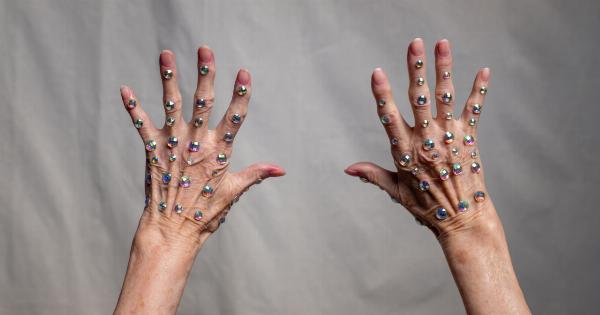Menopause is a natural phase of life that every woman experiences as she reaches her late 40s or early 50s. With this significant hormonal change, several bodily functions undergo transitions.
One of the most visible effects of menopause is the impact on skin health. As estrogen levels decline, skin may become drier, less elastic, and more susceptible to various issues.
However, by adopting a few essential skincare habits and making conscious lifestyle choices, women can maintain radiant and healthy skin even during their post-menopausal phase.
Understanding the Impact of Menopause on Skin
During menopause, the ovaries produce less estrogen, resulting in hormonal imbalances that affect the skin. Estrogen plays a crucial role in maintaining skin health and appearance.
It contributes to skin elasticity, moisture retention, collagen production, and wound healing. As estrogen levels decrease, various skin issues may arise, including:.
- Dryness: Reduced estrogen levels can lead to drier skin due to decreased sebum production, resulting in discomfort and itchiness.
- Wrinkles and fine lines: With declining estrogen levels, collagen and elastin levels decrease, leading to visible signs of aging such as wrinkles and fine lines.
- Sagging skin: Loss of skin elasticity can cause the skin to sag, particularly around the cheeks, jawline, and neck.
- Age spots: Hormonal changes can trigger the appearance of age spots or hyperpigmentation, especially in areas exposed to the sun.
- Acne and blemishes: Some women may experience acne breakouts or increased facial hair growth due to hormonal fluctuations.
Skincare Habits for Radiant Post-Menopausal Skin
While hormonal changes are inevitable during menopause, there are several effective skincare habits that can help women maintain radiant and healthy skin.
By incorporating the following practices into their daily routines, women can combat the common skin issues associated with post-menopausal life:.
1. Stay Hydrated
One of the simplest yet most important steps for maintaining radiant skin is to stay hydrated. Drinking an adequate amount of water helps prevent dryness and promotes overall skin health.
Aim to drink at least eight glasses of water or more per day to keep your skin hydrated from within.
2. Cleanse Gently
Choosing a gentle cleanser is crucial for post-menopausal women, as their skin tends to be drier and more delicate. Avoid using harsh soaps or cleansers that can strip away natural oils.
Opt for mild, hydrating cleansers that nourish and cleanse the skin without causing irritation.
3. Moisturize Regularly
Moisturizing is vital for combating dryness and maintaining skin elasticity. Look for moisturizers specifically formulated for mature or post-menopausal skin.
These moisturizers generally contain ingredients like hyaluronic acid, ceramides, and antioxidants that deeply hydrate the skin and improve its texture.
4. Protect from the Sun
Shielding your skin from harmful UV rays is crucial to prevent further damage and minimize age spots. Always apply a broad-spectrum sunscreen with at least SPF 30 before stepping out.
Additionally, wear protective clothing, such as wide-brimmed hats and long-sleeved shirts, when spending time outdoors.
5. Incorporate Antioxidants
Antioxidants are exceptionally beneficial for mature skin as they help neutralize free radicals and reduce oxidative stress.
Include antioxidant-rich foods like berries, leafy greens, and nuts in your diet and consider using skincare products containing vitamins C and E or green tea extract.
6. Take Care of Your Diet
A well-balanced diet plays a vital role in maintaining healthy skin. Include foods rich in omega-3 fatty acids, such as fatty fish and walnuts, as they help nourish the skin and reduce inflammation.
Additionally, consuming ample fruits and vegetables provides essential vitamins and minerals necessary for skin health.
7. Exercise Regularly
Regular exercise improves blood circulation, which delivers oxygen and nutrients to the skin, promoting a healthy complexion.
Engage in activities like brisk walking, swimming, or yoga, aiming for at least 30 minutes of moderate exercise most days of the week.
8. Get Sufficient Sleep
Adequate sleep is essential for overall well-being, including your skin. During sleep, the body repairs damaged cells and rejuvenates the skin. Strive to get 7-8 hours of uninterrupted sleep each night to allow your skin to regenerate effectively.
9. Manage Stress
High-stress levels can negatively impact skin health, leading to various issues like acne breakouts and dullness. Practice stress management techniques such as meditation, deep breathing exercises, or engaging in hobbies that help you relax and unwind.
10. Consult a Dermatologist
If you’re facing persistent or severe skin issues, it’s advisable to seek professional help. A dermatologist can assess your skin condition, prescribe appropriate treatments or recommend specific skincare products tailored to your needs.
In Summary
While menopause brings about significant changes in the skin, adopting a consistent skincare routine, making healthy lifestyle choices, and seeking professional advice when necessary can help women maintain radiant and healthy skin well into their post-menopausal lives. By promoting hydration, protecting from the sun, and nourishing the skin with antioxidants, women can embrace this new phase of life with confidence and grace.






























